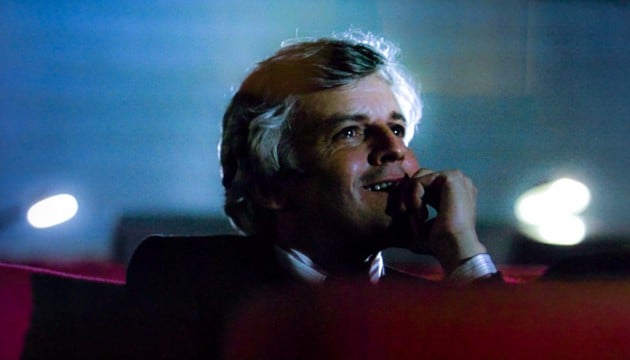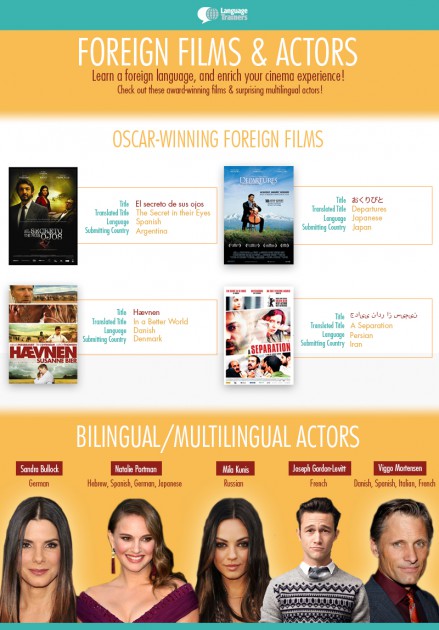Foreign Language Film Oscars
When it comes to the Oscars, the world’s attention often focuses on the designer gowns, the A-list bonhomie shared and, of course, the year’s glossiest Hollywood films.
Established in 1947 and awarded in the iconic surroundings of Hollywood’s Dolby Theatre, the Best Foreign-Language Film category suffers from underwhelming media coverage, the result of English-language dominance in cinema as explored in one of our previous posts.
Yet while it may not always grab all the headlines, the category remains a respected and uniquely prestigious Academy Award tradition, largely because it embraces an astonishing array of global talent.
The run-up to next year’s event promises to be among the most interesting yet. With entries submitted from a record-shattering 83 countries, according to Variety, including four newcomers (Kosovo, Malta, Mauritiana, and Panama) and no obvious front-runner, the race is on to decide which of the beautiful foreign language films will make the shortlist, gain the necessary nominations, and take home the statuette.
But what are the standout films, where do they hail from, and how can they help on your journey to mastering a new language?
Combining Languages and Cultures
A poignant film about an aging aborigine, Australian entry Charlie’s Country is interesting because it brings English together with the aboriginal Yolngu dialogue in one setting, cogently highlighting the cultural and linguistic differences.
Understanding what sets a language apart is the key to unlocking its secrets. If you have already mastered Yolngu, there are several other entries to enjoy, such as the British-made, Turkish film Little Happiness and Ireland’s The Gift, a crime thriller which features dialogue in both English and Gaelic.
Historical Context
Poland has garnered a lot of attention this year for its drama Ida, which details the story of a young nun who is rocked by the news that she is actually Jewish and that her parents perished in the Holocaust.
Ideologies and Political Interests
Perhaps something of a surprise, considering national traditions of censorship, this year’s entry from Russia is the controversial Leviathan from director Audrey Zvyagintsev.
The film, set in a remote Arctic town rife with political corruption, spares no one (including President Vladimir Putin). It took home the prize for Best Screenplay at Cannes earlier this year. Contemporary politics also come under the lens in this year’s Italian entry Human Capital, a film which depicts the moral effects of the 2008 economic crisis and offers a thought-provoking commentary on the Berlusconi era.
Dramatic Content
Two Days, One Night is this year’s Belgian submission. Directed by brothers Jean-Pierre and Luc Dardenne, the film stars Marion Cotillard as a factory worker who will lose her job unless she can convince her colleagues to forfeit their bonuses. While a variety of languages are spoken in Belgium, this superbly-acted, impassioned labor drama is in French, with human, political, and sociological elements sure to capture the attention of any French language student.
Visual Beauty
Winner of the coveted Palme d’Or award at Cannes earlier this year (as Variety reports), Turkish film Winter Sleep from director Nuri Bilge Ceylan is a domestic drama which tells the story of a family and their hotel in the snowy Turkish mountains.
In Cannes, Ceylan noted that his award came on the 100th anniversary of Turkish cinema and dedicated the film to the 301 victims of the Soma mine disaster and their respective families. Called “an examination of class and economic divisions in Turkey” by the New York Times, the film stars former soap star Haluk Bilginer and Variety called it,“a ravishingly beautiful magnum opus.”
Another visually impressive entry comes courtesy of strong, Nordic contender Sweden. Force Majeure is the story of the moral crisis faced by a family holidaying in the Alps after they come close to a controlled avalanche. Tim Gray of Variety called the film, “visually stunning even in its most banal moments and emotionally perceptive almost to a fault.”
Other notable entries include the French Canadian film Mommy, which took the jury prize in Cannes, Germany’s Beloved Sisters, Israel’s Getti: The Trial of Viviane Amsalem, and Argentina’s Wild Tales, a subversive collection of six standalone shorts.
It is worth remembering that many of these films cross boundaries and are valued in terms of their many different merits. Winter Sleep is beautiful, but it is also poignant in light of the Turkish mining disaster to which the director dedicates it. Charlie’s Country is useful because it melds English and Australian aboriginal languages, but it is also fraught with political and sociological messages.
Look at the film or films entered in the language you are learning and decide for yourself what interests you about them. Finding such an angle can assist you when learning a new language: enthusiasm is undoubtedly the key to effective learning.
Get interested in the subject matter of a film and your brain will be eager to understand what you see. Watch something you like, then sit back and allow your brain to soak up new information. Watch a unique and artistic foreign-language film and see the language you love spoken in a whole new way.
Foreign languages and film go hand in hand; just look at these award-winning foreign language films and surprising multilingual actors and actresses.
As a passive method of learning, film cannot teach you everything you need to know about a new language. But, combined with active learning, like practicing your verbal skills with a partner, it can certainly be an excellent aid. Best of all, with such quality and variety in the field, these films are an artistic and beautiful way to set about enhancing your learning.
Get ready for the 2015 Oscars by sending us an inquiry about language classes, or take one of our free online language tests to see how your language skills fare.
The Academy Award nominations will be announced on January 11, 2015, followed by the ceremony on February 22.


